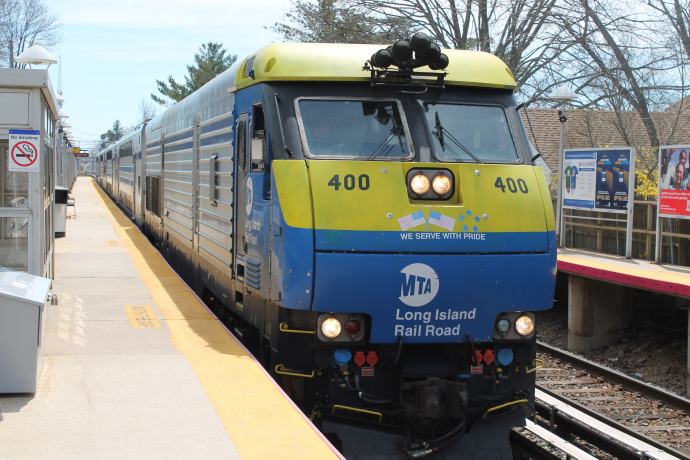The Metropolitan Transportation Authority’s Board of Directors voted Wednesday to accept the results of the environmental study of the Long Island Rail Road’s third track project.
The vote ended a yearlong effort to evaluate the impact of Gov. Andrew Cuomo’s plan for a third track along the LIRR’s Main Line from Floral Park to Hicksville.
The railroad’s final environmental study, released April 12, confirmed that the project would have a minimal impact and promises measures to mitigate noise, traffic and quality of life effects.
“The success of our region depends upon modern, up-to-date transportation systems and this visionary project imagined and shepherded by Gov. Cuomo represents the LIRR’s transformation from a 19th-century rail system to a 21st-century one,” Veronique Hakim, the MTA’s interim director, said in a statement. “I’m grateful to the Board for its support, again, in advancing this proposal.”
The MTA board’s vote was one of the final hurdles for the $2 billion project, which has faced hot local opposition.
It must still be added to the MTA’s 2015-2019 capital plan to get funding. That will require approval from the state’s Capital Program Review Board, composed of one member of the state Senate, one member of the state Assembly and a member from Cuomo’s office.
Planners are expected to award a bid this summer to one of four groups of firms who will both design and build the project.
The project, first proposed in January 2016, would eliminate seven street-level railroad crossings along the corridor, build sound-deflecting walls and add parking spaces in addition to installing the third track.
Critics of the project in Main Line communities who worry about its impact on their lives have questioned the validity of the LIRR’s environmental study.
Village officials in New Hyde Park, Floral Park and Garden City have said they are considering a lawsuit under the state’s environmental review law.
New Hyde Park Mayor Lawrence Montreuil said the MTA board’s approval of the study was an expected “rubber stamp.”
The three villages are still reviewing the final study with Beveridge & Diamond, their law firm, and weighing all options, including legal action, he said.
“I’m still optimistic that concerns will be addressed,” Montreuil said.
Supporters of the project, who say it would greatly improve commutes and boost Long Island’s economy, have praised the LIRR’s outreach and efforts to conform the project to residents’ desires.
Project planners have met consistently with local officials and community leaders since its inception and say they incorporated feedback into the study.
“The environmental review was very thorough and seems to have addressed all the issues raised at the public meetings and did a great job mitigating any significant impacts and addressing community concerns and recommended numerous important community benefits,” Dave Kapell, executive director the Right Track for Long Island Coalition, a group supporting the project, said at Wednesday’s MTA Board meeting.

